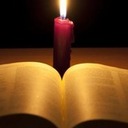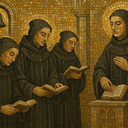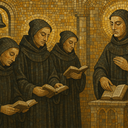Receive God's Love, Proclaim the Greatness of the Lord, Serve Joyfully & Make Missionary Disciples of Jesus Christ
Search
News - July 2025 RSS Feed
-
 Of all the Hours of the Liturgy of the Hours, the Office of Readings is often the most flexible—and the most overlooked. Unlike Morning Prayer (Lauds) or Evening Prayer (Vespers), which are tied to specific times of day, the Office of Readings can be prayed at any time. This makes it particularly suitable for those with unpredictable schedules or for those looking to deepen their prayer life. READ MORERead More
Of all the Hours of the Liturgy of the Hours, the Office of Readings is often the most flexible—and the most overlooked. Unlike Morning Prayer (Lauds) or Evening Prayer (Vespers), which are tied to specific times of day, the Office of Readings can be prayed at any time. This makes it particularly suitable for those with unpredictable schedules or for those looking to deepen their prayer life. READ MORERead More -
 Clergy are obligated to pray two of the Liturgy of the Hours daily. One of these is Evening Prayer, historically known as Vespers. It begins with a simple but striking dialogue: O God, come to our aid. O Lord, make haste to help us. READ MORERead More
Clergy are obligated to pray two of the Liturgy of the Hours daily. One of these is Evening Prayer, historically known as Vespers. It begins with a simple but striking dialogue: O God, come to our aid. O Lord, make haste to help us. READ MORERead More -
 Generally the first of the Liturgy of the Hours that most people pray is Morning Prayer (historically known as Lauds). The liturgy begins with this simple dialogue: Lord, open our lips. And we shall praise your name. This dialogue can be followed by the invitatory psalm and then a hymn. READ MORERead More
Generally the first of the Liturgy of the Hours that most people pray is Morning Prayer (historically known as Lauds). The liturgy begins with this simple dialogue: Lord, open our lips. And we shall praise your name. This dialogue can be followed by the invitatory psalm and then a hymn. READ MORERead More - Read More
-
 The Divine Office and its prayers have roots in Jewish tradition when sacrifices and prayers would be offered during the morning and evening. Additionally there is a mention of seven times of daily prayer in Psalm 119. Early Christian adaptations of these prayers developed differently in various regions and religious communities. Typically, there would be morning and evening prayers as well as shorter prayers at the 3, 6, & 9th hours of the day. With the formalization of Benedictine order there developed a standard for praying the hours which many religious communities would adapt themselves. READ MORERead More
See More
The Divine Office and its prayers have roots in Jewish tradition when sacrifices and prayers would be offered during the morning and evening. Additionally there is a mention of seven times of daily prayer in Psalm 119. Early Christian adaptations of these prayers developed differently in various regions and religious communities. Typically, there would be morning and evening prayers as well as shorter prayers at the 3, 6, & 9th hours of the day. With the formalization of Benedictine order there developed a standard for praying the hours which many religious communities would adapt themselves. READ MORERead More
See More
